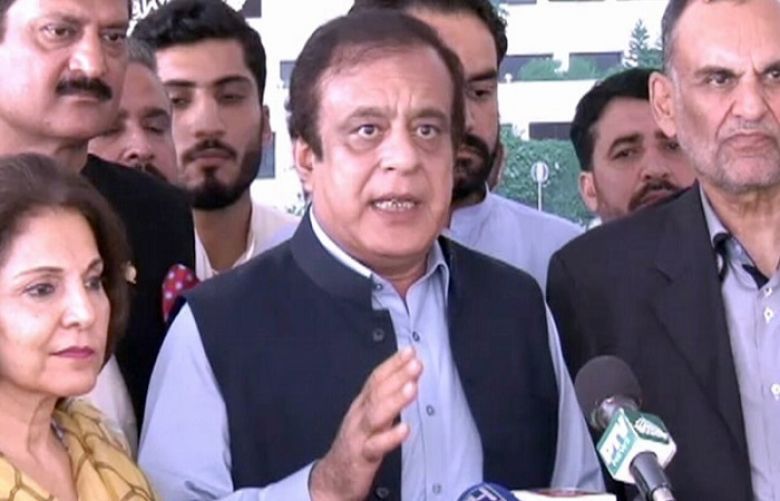Leader of the House in the Senate Shibli Faraz, in the aftermath of the shocking outcome on Thursday of the no-trust motion against Chairman Sadiq Sanjrani, said that he regrets that in all this brouhaha major political parties were taken advantage of by JUI-F chief Maulana Fazlur Rehman.
"The opposition's movement has failed. We had said [this would happen] since day one and we met the leaders of the opposition and explained to them that what they are setting out to do is against the prestige of this institution, its stability and is destroying its spirit.
"We went to Maulana Fazlur Rehman's house as part of our cultural tradition of visiting other people's houses to discuss matters. He couldn't help himself and he went ahead and gave a statement which made it seem we had come to seek his help," said Faraz.
"He hasn't even been able to help his own self," he added.
"Despite having no political leverage, he used this no-confidence motion for his own politics and I regret that with this, other major political parties were used," said Faraz.
"They did not realise that what they are setting out to do will ultimately affect their own selves adversely," he said.
He said that the opposition parties undertook the campaign "to save their skins from accountability". He went on to say that Maulana Fazlur Rehman "uses Islam as a shield, whereas the other opposition parties hide from the accountability drive started by the prime minister".
"Our opposition leaders themselves realised [that the vote was wrong] and it is with their support that we rendered the no-trust motion unsuccessful," he said.
He further said that the government has no hard feelings toward the opposition and that both sides have to move forward together to bring in legislation for the benefit of the people.
"This is not just Sadiq Sanjrani's victory, it is the institution's victory," he continued.
Faraz said that not only did the outcome ensure that democracy is stabilised but it did not let the image of the institution be tarnished.
He said that the opposition should now get serious as they have not been elected to simply walk out when there are cases against their leadership. They should help the government help the people.
"The House can only be run if both the opposition and the treasury work together," he emphasised.
The Senate leader hoped that the days to come will prove that this was the first and last time that there was an attempt to destabilise the Senate.
"I hope they have now learnt a lesson," he concluded.
'No horsetrading'
In the interaction with reporters that followed, Faraz rejected the impression that senators had been bought out.
"All senators, whether they are from the opposition or the treasury, are all honourable people. At least for this election, I guarantee [there was no horsetrading]."
He then proceeded to recount the 2015 Senate elections in which Pakistan Tehreek-i-Insaf had only five members and he had been fielded as the party's candidate for the post of deputy chairman of the Senate.
"That day we were not even aware of the Senate's geography. The PTI candidate still obtained 19 votes that day. Will you call this horsetrading? Will you call this being a sell out?"
"I had no right to inquire how I had obtained those 19 votes. This also depends on the candidate."
As things got heated, a reporter interjected to ask, "Will Shibli Faraz ever vote against the party?"
To this, the Senate leader unequivocally responded with: "Shibli Faraz will never vote against the party. But, if you are saying these people were bought out [...] you can not say such things when the sanctity of the Senate was restored."
"You can say there was a disagreement with the party. This is a secret vote. You should also give me an explanation for those 19 votes, the kind of questions you are raising. We were five senators and we did not even know anyone. First explain those 19 votes to me and the public and then ask such questions."







